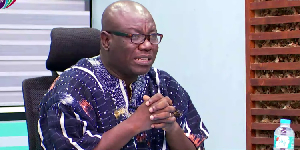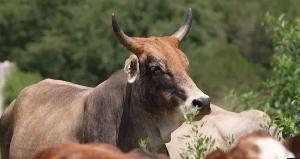Accra, Nov. 16, GNA - The Government has increased its budgetary allocation to the National Media Commission (NMC) to 1.7 billion cedis from 1.5 billion cedis in 2005 to strengthen the Commission's regulatory role and ensure that the media performed in a manner conducive to peace building and national development.
It is also to reposition the media as a partner in the nation's development process using the Growth and Poverty-Reduction Strategy II (GPRS II) as the basis, Mr Kwadwo Baah-Wiredu, Minister of Finance and Economic Planning stated in the 2007 Budget Statement presented to Parliament on Thursday.
Mr Baah-Wiredu said the objective was to enhance the NMC's monitoring of media content, identify and address professional deficits as well as build the capacity of the Commission to track media content, and identify triggers to conflict as an early warning mechanism. Monitoring would also track how much of development content is in the media, the direction of coverage (positive or negative) and the general tenor of media content.
This is necessary to identify the kind of content available to the citizenry bearing in mind that negative media influence on the public mind can undermine confidence in elected leaders and push the nation to the brink of conflict.
Mr Baah-Wiredu said the second objective for capitalisation of NMC was to enhance its capacity building programmes, which aimed at moving the media to become agents of development by using the GPRS II to drive the process.
The focus, according to him was to ensure that the media contributed to the achievements of the objectives of GPRS II by ensuring the effective participation of the media in free and credible pre-election activities, including development-based coverage of the presidential and parliamentary primaries. It would also enhance the media capacity to promote efficiency and accessibility of national markets, develop national media framework to promote sustainable and systematic media participation in positioning Ghana in the global and regional markets.
"Develop a policy on how to use community radio to support the modernization of agriculture and strengthen infrastructure, enhance the capacity of the media to raise and discuss national concerns with special reference to the National Health Insurance Scheme (NHIS) and the Youth Employment Programme," he said.
He commended the NMC for embarking upon a process of retooling aimed at developing an efficient strategy for democratic regulation of media for peace building.
On the future of Public Broadcasting in Ghana, Mr Baah-Wiredu explained that public broadcasting offered the best platform for education and national cohesion, but expressed concerns about the management and financial sustainability of the Ghana Broadcasting Corporation, the only public broadcaster in Ghana.
Business News of Thursday, 16 November 2006
Source: GNA
BUDGET: 1.7 billion cedis allocated to NMC
Entertainment











